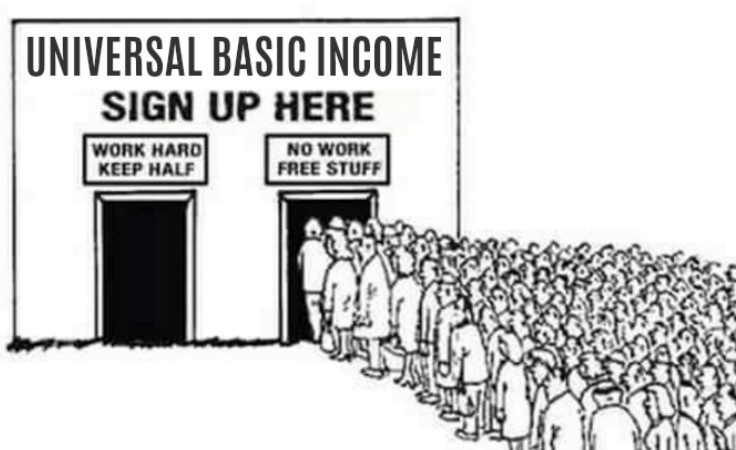
By Tyler Durden
Inflationary and stagflationary crisis events open up a lot of doors and create a lot of convenient opportunities for globalists obsessed with the ideology of total centralization. A key aspect of the “Shared Economy” agenda put forward by the WEF is the concept of UBI (Universal Basic Income). If the government becomes the primary pillar of the economy and the primary source of necessities for a large portion of the population, then this makes public defiance of government mandates much less likely.
UBI gives political elites incredible power in exchange for nothing more than currency, paper or digital, created from thin air. This is why it is concerning that so many global organizations have become aggressively vocal about government subsidies of necessities the past couple of years.
International Monetary Fund head Kristalina Georgieva recently made statements calling for governments to be more active in subsidizing food and energy costs to their citizens in the wake of the inflationary crisis. Such subsidies would of course be the beginning stage of an inevitable push for UBI.
We saw some of the effects of UBI in a limited way during the covid lockdowns, which resulted in over $6 trillion in stimulus measures in a single year and helicopter money being funneled directly into the US economy. This momentary UBI led to mass labor shortages across the country. The temporary jump in retail demand has now faltered, but it did result in increased supply chain woes and added to the already existing inflation problems. Overall, covid stimulus policies have been a disaster for the US.
Another reason for the IMF to co-opt the discussion on solutions is to also divert blame for the problem. It is the very central banking policies that the IMF promoted for years that led directly to the inflation crisis we are dealing with today. Georgieva continues to promote the lie that the Russian invasion of Ukraine is a main factor causing global inflation, even though inflation was hitting 40 years highs in the US well before the war ever started, and has been a constant weakness within Europe and other parts of the world for years.
While sanctions on Russian oil and gas will certainly add to instability in the future, it was central banking policy that created the bulk of this disaster in the first place.
The latest statement from the IMF may also reveal the expectations of globalists on the inflation front going forward. With multiple institutions from the WEF, World Bank, the UN, the IMF and the BIS all predicting worldwide food shortages this year, it’s clear that inflation is going to get far worse. Georgieva’s recommendations for subsidies on food and energy should act as a warning signal; the IMF would not be suggesting UBI-like measures unless they thought the economic crisis would be dangerous enough to compel the public to demand government monetary intervention on such a comprehensive scale. It might not seem like it, but a large number of people are fully aware that stimulus measures and government spending only lead to higher prices. They would have to be extremely desperate to ask for more of the same while hoping for different results.
Source: www.activistpost.com/2022/06/universal-basic-income-imf-calls-for-governments-to-subsidize-food-and-energy.html
